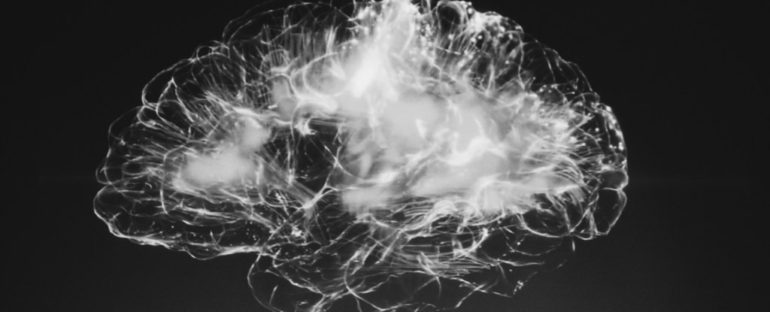Among the many serious symptoms of COVID-19, the strange neurological effects experienced by many patients count as perhaps the most mysterious.
A sudden loss of smell and taste was one of the first unusual symptoms reported by COVID-19 patients, but stroke, seizures, and swelling of the brain (called encephalitis) have all been described.
Some patients diagnosed with COVID-19 also experience confusion, delirium, dizziness, and have difficulty concentrating, according to case reports and reviews.
For several months, doctors have been relentlessly trying to understand this disease, and its many manifestations that seem to affect the brain in ways we can’t fully explain.
To synthesise some of the rapidly accumulating data, two neurologists have now conducted a review of research exploring how COVID-19 disturbs patterns of normal brain function, which can be measured by an EEG.
An EEG, short for electroencephalogram, records electrical activity in different parts of a person’s brain, typically by using electrodes placed on their scalp.
In their review, the researchers collated data on nearly 620 COVID-positive patients from 84 studies, published in peer-reviewed journals and pre-print servers, where the EEG waveform data were available to analyse.
Looking at EEG results could indicate some form of COVID-related encephalopathy in these patients – signs of impairment or disturbance to brain function.
Approximately two-thirds of the patients in the studies were male, and the median age was 61 years old. Some people also had a pre-existing condition, such as dementia, that could alter an EEG reading, which the researchers considered when evaluating their test results.
Among the 420 patients where the basis for ordering an EEG was recorded, the most common reason was an altered mental state: close to two-thirds of the patients studied had experienced some delirium, coma, or confusion.
Around 30 percent of patients had had a seizure-like event, which prompted their doctor to order an EEG, while a handful of patients had speech issues. Others experienced a sudden cardiac arrest, which could have interrupted blood flow to the brain.
The patients’ EEG scans showed a whole spectrum of abnormalities in brain activity, including some rhythmic patterns and epileptic-like spikes in activity. The most common abnormality noted was diffuse slowing, which is an overall slowing of brain waves that indicates a general dysfunction in brain activity.
In the case of COVID, this impairment could be the result of widespread inflammation, as the body mounts its immune response, or possibly reduced blood flow to the brain, if the heart and lungs are weak.
As for localised effects, a third of all abnormalities detected were detected in the frontal lobe, the part of the brain which handles executive thinking tasks, such as logical reasoning and decision-making. The frontal lobe also helps us to regulate our emotions, control our behaviour, and is involved in learning and attention.
“These findings tell us that we need to try EEG on a wider range of patients, as well as other types of brain imaging, such as MRI or CT scans, that will give us a closer look at the frontal lobe,” said neurologist and co-author Zulfi Haneef from Baylor College of Medicine in Houston.
In time, an EEG could help cement a COVID-19 diagnosis or hint at possible complications. Doing so might help doctors monitor the long-term complications of COVID-19, and detect any long-lasting effects on a patient’s brain function.
Unfortunately, as it stands the results don’t give any indication of how rare or common these brainwave disturbances are in the broader population, since only COVID-19 patients who had an EEG test were included in the analysis.
But it does add to mounting evidence that the novel coronavirus can have a serious impact on our neurological health.
“More research is needed, but these findings show us these are areas to focus on as we move forward,” Haneef said.
“EEG abnormalities affecting the frontal lobe seem to be common in COVID-19 encephalopathy, and has been proposed as a potential biomarker if recorded consistently,” the authors wrote in their paper.
As the pandemic rolls on, we’ve come to understand just how stubborn COVID-19 can be, with patients dubbed ‘long haulers‘ describing how they can’t shake symptoms, and still feel fatigued months after they were diagnosed.
“A lot of people think they will get the illness, get well, and everything will go back to normal,” Haneef said in a statement.
“But these findings tell us that there might be long-term issues, which is something we have suspected and now we are finding more evidence to back that up.”
The study was published in Seizure: European Journal of Epilepsy.



